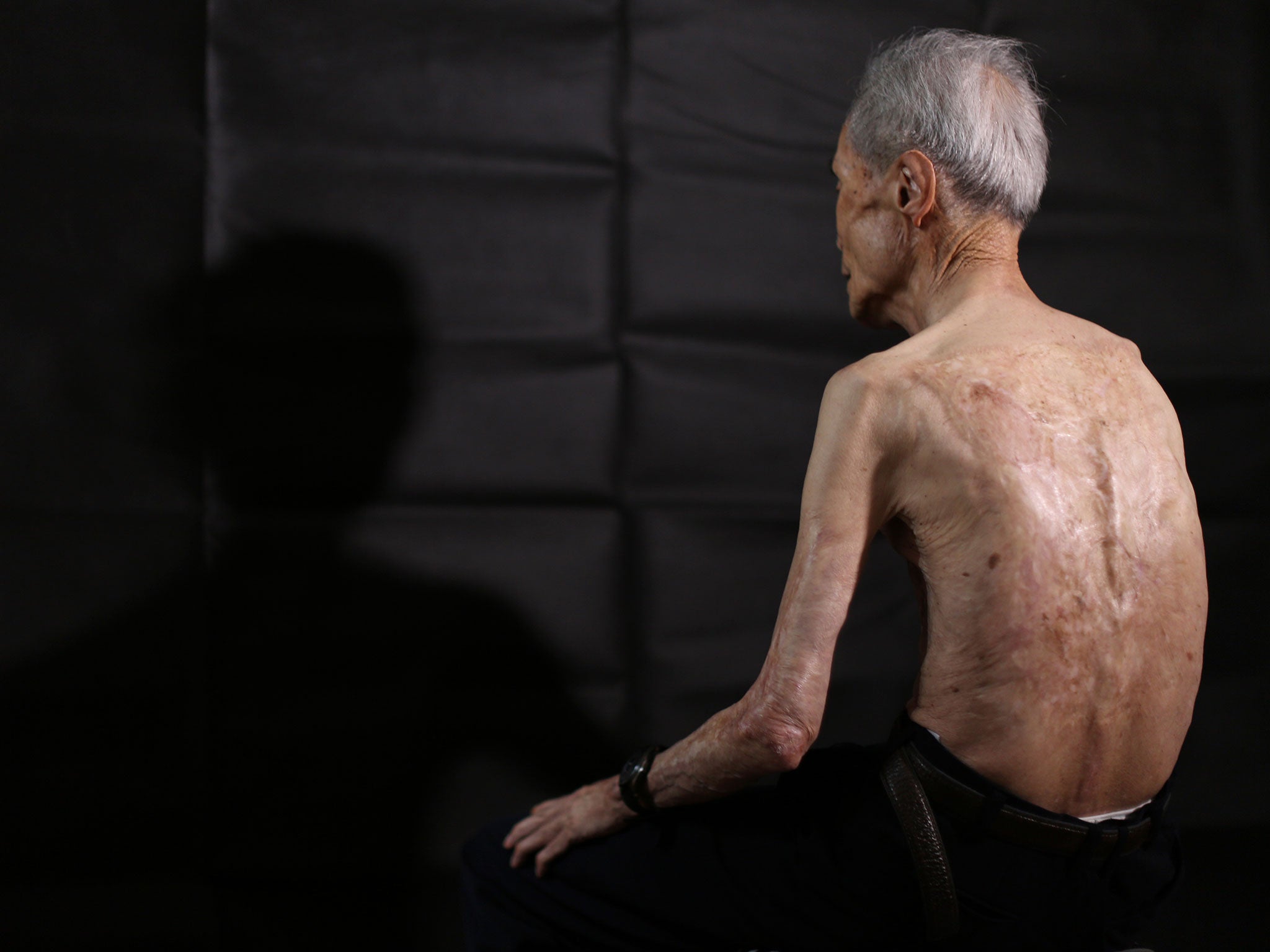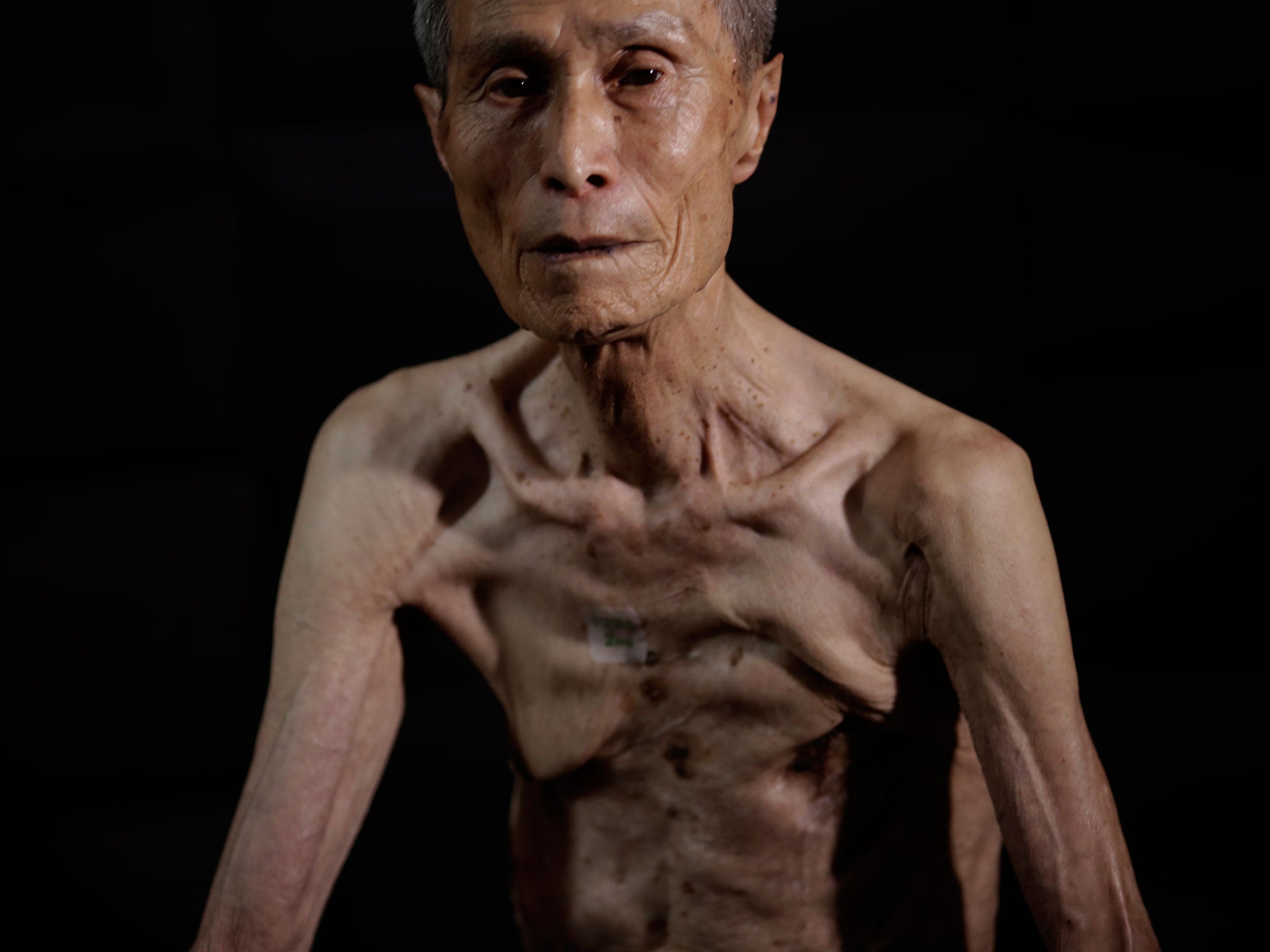Nagasaki anniversary: Meet Sumiteru Taniguchi, the man skinned alive by the atomic bomb 70 years ago
Mr Taniguchi was 16 and working as a letter carrier when the powerful blast threw him from his bicycle

Struggling with a left arm that has never straightened out, Sumiteru Taniguchi slowly peels the undershirt off his frail, 86-year-old body to show two visitors his scars from the atomic bomb attack on Nagasaki 70 years ago.
Decade after decade he has lived with them – a web of wounds covering most of his back, and the remains of three ribs, half rotted away, that continually press against his lungs, making it hard to breathe. His wife still applies a cream every morning to soothe the scars, but not a day passes without pain.
Mr Taniguchi was 16 and working as a letter carrier when the powerful blast threw him from his bicycle. He was about a mile from the epicentre of the “Fat Man” plutonium bomb that detonated over Nagasaki on 9 August 1945, killing more than 70,000 people. Six days later, Japan surrendered, ending the Second World War.
Speaking in a weak voice, with some effort, he tells of how he wandered for three days in a daze. He felt something like a ragged cloth hanging from his back, shoulder and arm: it was his skin.

Mr Taniguchi spent the next 21 months lying on his stomach, getting treatment for his burned back and exposed bones. Going in and out of consciousness, he could hear nurses in the hallway asking each other if the boy was still breathing.
Because he lay immobile, as one of his teenage arm bones grew, it blocked the elbow joint so he can’t fully extend the arm.
Having marked the anniversary of the US dropping the first atomic bomb, “Little Boy”, over Hiroshima on 6 August 1945, today Japan will commemorate the events in Nagasaki. Mr Taniguchi hopes no one else will have to suffer the pain of a nuclear blast. He heads a Nagasaki survivors group working against nuclear proliferation, though old age and pneumonia are making it harder for him to play an active role.
After so many years, his words are tinged with frustration.
“I want this to be the end,” he says, slipping his shirt back on.
AP
Join our commenting forum
Join thought-provoking conversations, follow other Independent readers and see their replies
Comments